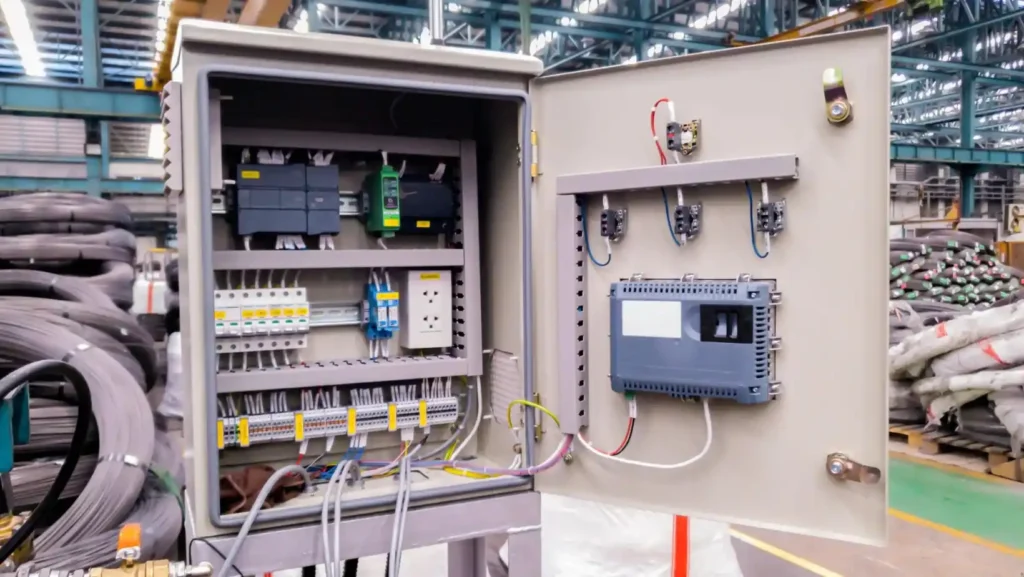The ICTQual Level 4 Diploma in Electrical Engineering (120 Credits) – One Year offers a solid foundation for students to advance in the electrical engineering field. Upon successful completion of the diploma, there are various progression pathways available, depending on the student’s career goals, interests, and aspirations. These pathways can lead to further academic qualifications, advanced career opportunities, or specialized areas of electrical engineering.
1. Further Education and Qualifications
- Level 5 Diplomas: After completing the Level 4 Diploma, students can progress to a Level 5 Diploma in Electrical Engineering or a related discipline. These qualifications often focus on more advanced topics, such as electrical design, energy systems, and high-level engineering principles, and can be a step toward higher management or technical roles.
- Higher National Diploma (HND): Students may choose to pursue an HND in Electrical Engineering, which builds on the knowledge gained at Level 4 and provides a more specialized, in-depth exploration of the electrical engineering field. An HND can further enhance job prospects and open doors to more advanced technical roles.
2. Advanced Career Opportunities
The Level 4 Diploma provides the skills needed to pursue a wide range of roles in electrical engineering and related fields. Graduates may choose to work in various sectors, including construction, manufacturing, energy, and automation. Possible career opportunities include:
- Electrical Technician: Work with electrical systems, machinery, and infrastructure to install, maintain, and repair electrical equipment.
- Control Systems Engineer: Design and manage automation systems used in manufacturing, robotics, and industrial applications.
- Electrical Design Engineer: Specialize in designing electrical systems and circuits for various applications, from residential to industrial installations.
- Renewable Energy Engineer: Work on projects involving solar, wind, and other renewable energy sources, contributing to sustainable energy systems.
- Electrical Maintenance Engineer: Ensure the ongoing operation of electrical systems in factories, power plants, and other industrial facilities, performing regular maintenance and troubleshooting.
3. Specialized Areas of Study
Graduates of the ICTQual Level 4 Diploma may wish to further specialize in a specific area of electrical engineering to enhance their expertise and career options. Specialized areas include:
- Power Systems Engineering: Focusing on the generation, transmission, and distribution of electrical power, including work with electrical grids and power plants.
- Automation and Control: Specializing in designing and implementing automated systems for industrial applications, including PLC programming and robotics.
- Renewable Energy Engineering: Deepening knowledge in the design, implementation, and integration of renewable energy systems such as solar, wind, and hydropower.
- Electrical Machine Design: Focusing on the design, testing, and optimization of electrical motors, transformers, and other machines used in industrial applications.
These specialized fields often offer higher salaries and leadership opportunities, as the demand for experts in these areas continues to grow.
4. Professional Certifications and Accreditation
After completing the Level 4 Diploma, students may pursue professional certifications that further enhance their employability and professional standing. For example:
- Chartered Engineer (CEng): Working towards becoming a Chartered Engineer through institutions such as the Institution of Engineering and Technology (IET) or Institution of Mechanical Engineers (IMechE) can significantly enhance career prospects. This typically involves further study, gaining work experience, and passing professional exams.
- Certified Control Systems Technician (CCST): For those interested in automation and control systems, gaining certification through organizations like the International Society of Automation (ISA) can open up further career progression in control systems engineering.
- Project Management Certification: Graduates may also choose to pursue certifications in project management, such as PRINCE2 or Project Management Professional (PMP), to transition into management roles overseeing engineering projects.
5. Apprenticeships and Work-Based Learning
For those who prefer hands-on learning, progressing into apprenticeship programs or work-based learning in partnership with employers can offer practical experience and additional qualifications. Many engineering firms offer apprenticeship schemes that allow you to continue learning while working on real-world projects. This pathway allows students to earn a salary while further developing their skills in the workplace.
6. Entrepreneurship and Self-Employment
With a Level 4 qualification, students also have the option to pursue entrepreneurial endeavors, such as:
- Starting an Electrical Engineering Business: Graduates can start their own company in areas such as electrical installation, maintenance, renewable energy systems, or automation services.
- Consulting: Those with a passion for problem-solving and innovation can offer consultancy services in specialized fields like power systems, control automation, or energy management.

